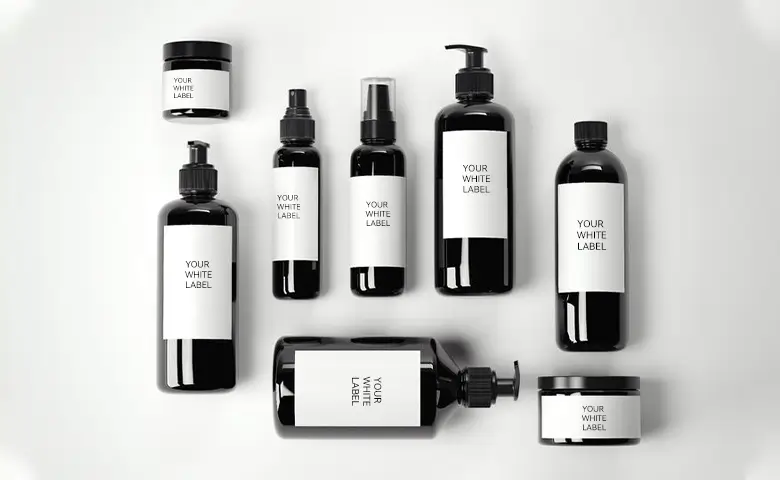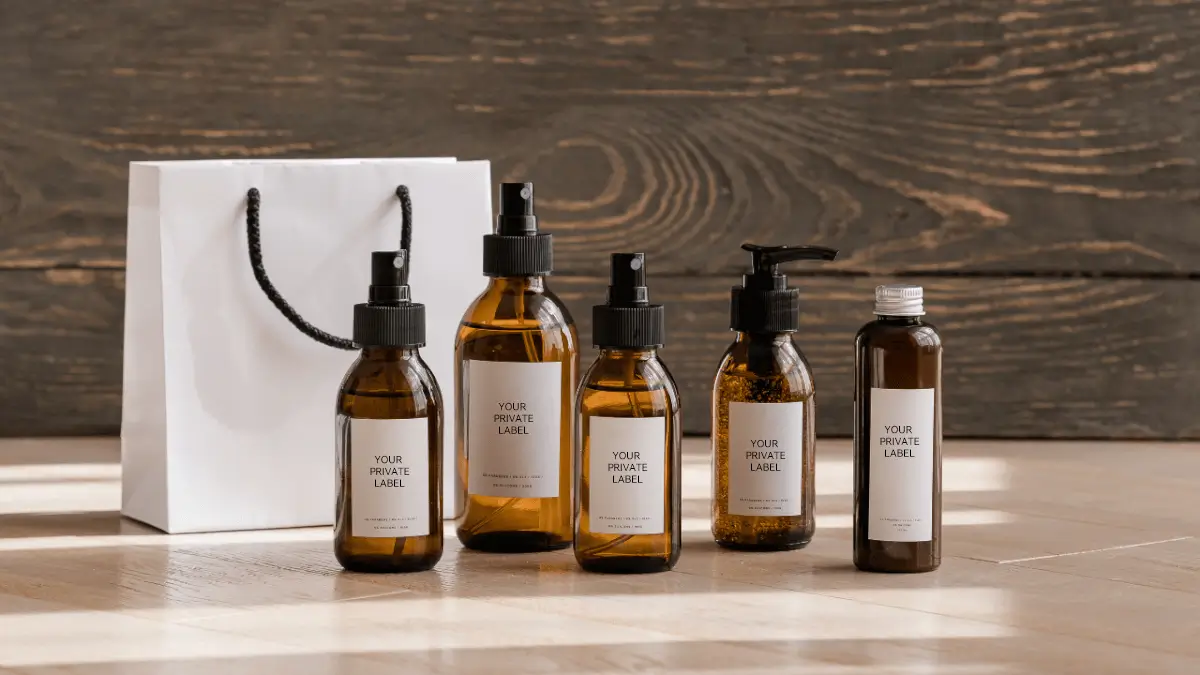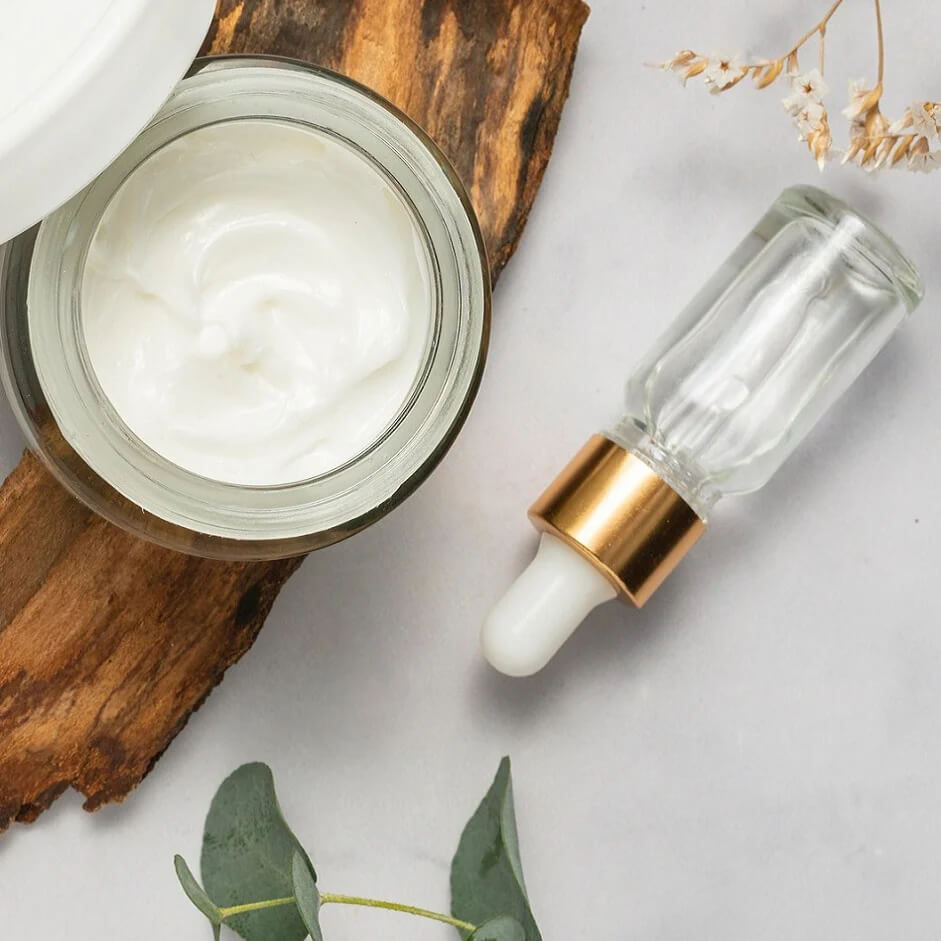
If you want to create your line of skin care products, you will need to find a white label or private label skincare manufacturer to help you produce these products. Since these two concepts are often confused, choosing the suitable model for you can be challenging, affecting your skincare business and your corporate strategy.
Here, we’ve put together a guide to the differences between white label and private label skincare to help make your skincare line vision a reality. When you’re ready to get started, we’ll help you every step of the way.
White label skincare refers to a model where products are pre-formulated by manufacturers, sold under your company's brand label, and sold to your customers. It is very suitable for small businesses or startups that want to source and sell branded products quickly.
White label skincare allows you to quickly choose from market-tested products and reduce the risk of investment, but you will not be able to own and change the formula of these products. You can find high-quality, popular white label products that meet various skincare needs. The right marketing strategy can transform these into "iconic" products and create a strong brand image.

Private label skincare is when products are specially formulated to the customer's specific brand requirements and tailored to them. It is the perfect choice for customers who want more control over the formulation and brand of the product. This is a cost-effective and consistent approach that meets the customer's vision.
Private label skincare allows you to create custom products instead of working with a well-known brand product supplier. You can choose from the manufacturer's formulas, adjust the efficacy and formula, and have total input on the texture, color, fragrance, and packaging used for the product until you are satisfied, thereby increasing customer trust and building your reputation as a trusted supplier.
Private label skincare takes more time, but it allows brands to sell unique products without worrying about the same products on the market. Create a one-of-a-kind formula that meets the ever-changing market needs and succeed in the skincare business through personalized and innovative skincare solutions.

White label Skincare are pre-made formulas that can be sold under a brand name. They are limited to a selection of pre-formulated skin care products. The products are generic and can be used by any company. They offer limited customization options and allow for brand and packaging changes. They are suitable for companies that want to enter the market quickly, start small, and only need to invest a little money.
Private label skin care is a custom formula made for the brand, allowing the brand to change the label and product or choose to develop an entirely new skin care formula. It can fully control every aspect of product development, from the initial formula to the final packaging details. It is suitable for creating unique products for specific needs to build brand loyalty and gain value.

By purchasing white label products and selling them under your brand, you cannot make changes to the product itself, which reduces the differentiation opportunities to a certain extent, and focuses more on brand, customer service and marketing to compete.
Private label skincare products belong to your brand, formulated, developed, and contracted for you by experts. You can optimize it according to your ideas, which is more flexible, can clarify the brand's consumer group, and better establish the brand image.
White label products are already pre-formulated, and you only need to add your logo to the label, with fast lead times and quick market entry.
Private label skin care takes longer to complete, with products being custom-made and going through extensive testing and regulatory approval, as well as packaging, color, design, and even product names. Still, it can produce more unique products and offer tremendous strategic advantages.
White label skin care does not require development and manufacturing processes, which is more cost-effective and allows companies to save more time and money, expanding rapidly. However, there is only a little room for customization of products, and there is always a fixed cost. Products are sold within this range.
Private label skin care products require more initial investment. Due to the customized nature of the product, you can better control pricing and may increase profit margins. However, it gives you this control. Determining your retail price can compensate for the more expensive initial cost. Marketing with unique products can improve brand value and customer loyalty.
White Label Skincare
White label skincare products have a smaller minimum order quantity, a faster process and no development costs. It is undoubtedly a good choice if you have a limited budget and want to enter the market quickly. This model can help you take advantage of market trends and promptly launch product tests for business.
White label skincare cannot own the formula and can only choose from existing formulas. As market competition intensifies, more and more brands will appear to sell products with the same concept, which may lead to strict cost growth. It is easier to change suppliers by changing the product.

Private Label Skincare
Private label skincare allows you to have unique products, customize and control the formula, and create exceptional products that meet market needs, increasing customer loyalty. Products can be enhanced or reformulated. As the business grows, the unit cost will gradually decrease, improve the company's reputation and profits, and stick to your vision.
Private label skincare products require a more significant investment in the early stage and take longer. You may also need to meet the minimum order quantity. At the same time, the costs associated with customization and small batch production are higher, depending on the manufacturer. The return on investment takes longer, and there is a risk of missing market opportunities.
Both white label and private label have advantages and disadvantages. Choosing a suitable business model that fits the situation would be best. Whatever method you choose, the most important thing is finding a trustworthy manufacturer.
Are you ready to build your skincare brand? There are many private label skincare manufacturers around the world. Finding a suitable manufacturer that is easy to communicate with takes a lot of work. Xiran Skincare is a professional private label skincare manufacturer specializing in cosmetic formulation, cosmetic customization, brand design and packaging, flexible order production system, and rapid response production system to ensure your orders are delivered efficiently and on time. Professional after-sales service, providing flexible order and fast response production systems to ensure that your orders are delivered efficiently and on time. Professional customer service offers the best experience. Now is the time to stick to your vision and go private label. Contact us now!

